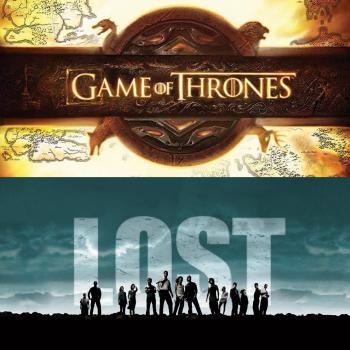
In the wake of Mark Zuckerberg’s hearing on Capitol Hill about Facebook’s distribution of its users’ privacy, I ran across an article in the New York Times about how to download your FB data to see what the social media platform “has” on you. (Download your FB data here.)
I followed the steps and about ten minutes later was sifting through a compressed file including incredibly old Facebook messages, my entire timeline, videos and photographs, events I hosted, and the phone number of everyone I’ve ever called apparently.
To some, this amount of data may seem overwhelming – scary even. Oh no! I deleted my ex’s phone number but FB still retains it! Because…we’re both on FB. And I’ve allowed all my devices to sync.
But, at least to me, opening my personal data file was less a Pandora’s box than a treasure trove.
Why? Let’s dig in.
Social Media is a Tool
I am not a millennial. Although my father is a tech guy, and my family had access to Donkey Kong before anyone else knew it was a thing, I never went on the World Wide Web until sometime in college.
At which point I suffered an amusing introduction to the internet when, while sitting at a public computer at Franciscan University of Steubenville’s library, I naively typed in: “fantasy (dot) com” reasoning that since I’d been told the web worked like “[subject of interest].com” and I liked fantasy novels…
Needless to say, after I managed to stop freaking out and close down all the pop up pornography windows, I was a bit more careful about how I searched the web.
Fast forward a few years, and I fell into teaching students – teens, in particular. Teaching teens theology, specifically. Teaching teens theology by day, and theatre by night, explicitly. In the Boston diocese. During the priest scandals.
Adolescents can smell hypocrisy a mile away, so I strove to be as honest as I could with them, while still maintaining a professional distance. Those students who I mentored, I tried to connect with their parents and loop them in as much as possible. But yes, there were times when students contacted me over instant messenger to ask for help to throw away the weed in their possession.
Social media is a tool.
The New Public Square
I didn’t get on Facebook until I went back to grad school. Which is to say, half-way through my teaching career, when I transitioned from a full-time classroom teacher at the Catholic high school to an adjunct teaching artist at the local public high school.
By then, I was a published author and had run a few websites, including the now-defunct Christian Guide to Fantasy. Putting my name out there was another level of responsibility. What I wrote, I had to stand by. If my mind changed (as it did over Harry Potter), I had to address that. And even after I took down a site, I had to be aware that things never really die on the internet.
This meant that in entering Facebook, I’ve been aware from the start that – just like the classroom – there needs to be a certain amount of divide between the deepest part of me and my public face. But also, that this is not unusual…or even a modern idea.
Facebook is the new public square.
And just like there are things I might let be known, or even soapboxes I might stand on in the public square, gossip or anecdotes I might be willing to speak aloud no matter who overheard and remembered – there are other things that are best kept for private one-on-one conversations. Not in the public square. Not on Facebook…but face to face.
A Curated Scrapbook
But what about the phone numbers? What about the pictures and the videos and the private FB messages that the social media platform has on file?
Well, blame it on my mother being a genealogist, but I’m grateful that the record of my life isn’t lost to the stream of time.
Blame it, too, on the fact that somewhere in middle school – once I realized I wanted to be a published author – I realized that came at the cost of losing some of my own privacy. Some part of me would belong to the public. It was just part of the job. The important thing is that I got to choose what part of me belonged to the public. And for the aggregation of old photographs and videos and musings and poetry I threw up on FB that I would have otherwise lost, I’m grateful.
Blame it, finally, on the fact that I’m miserable at ever keeping an address book. Or remembering birthdays. Or finding that phone number again. At least for me, I laughed out loud to see my ex’s phone number in the list (although the message thread I deleted is apparently gone – and good riddance). But even so, when I synced my devices through FB, I was aware that I was letting the site aggregate my data. In fact, I wanted it to.
Social media – all of social media – is a tool.
Different Folks, Different Strokes
I admit that my reaction to the revelation that FB has been storing the data I’ve uploaded to it may not be everybody’s. My own friends group ranges from those who barely use email in order to maintain Ron Swanson levels of privacy, to many of my actor and entertainer friends who’ve realized that the cost of being seen for a living is…being seen while living.
But what I do want to encourage you to do is to consider your own behavior. Is there something about the relative anonymity of social media that has encouraged you to troll discussion threads, for example? Would you be happy to have all your most hateful comments on Patheos made public and linked back to you? Have you practiced charity even in your private FB messages with friends? Have you, in fact, considered whether the person you are on-line is the person you’d really like to be?
Not everyone is called to live in this world publicly. But we know that in the end, all will be made known to each other – and not by an algorithm, not by a fellow in Silicon Valley, but from our own mouths, and before the Throne of Grace.
So I encourage you – I encourage myself – to practice virtue, even on-line, now.
And then maybe you won’t be worried to show your face when that other Book is opened.
 Image courtesy of Pixabay
Image courtesy of Pixabay
You can help support the Pop Feminist for as little as $1/month when you become a patron on Patreon! Check it out and drop a line saying what you’d like to have reviewed.
















